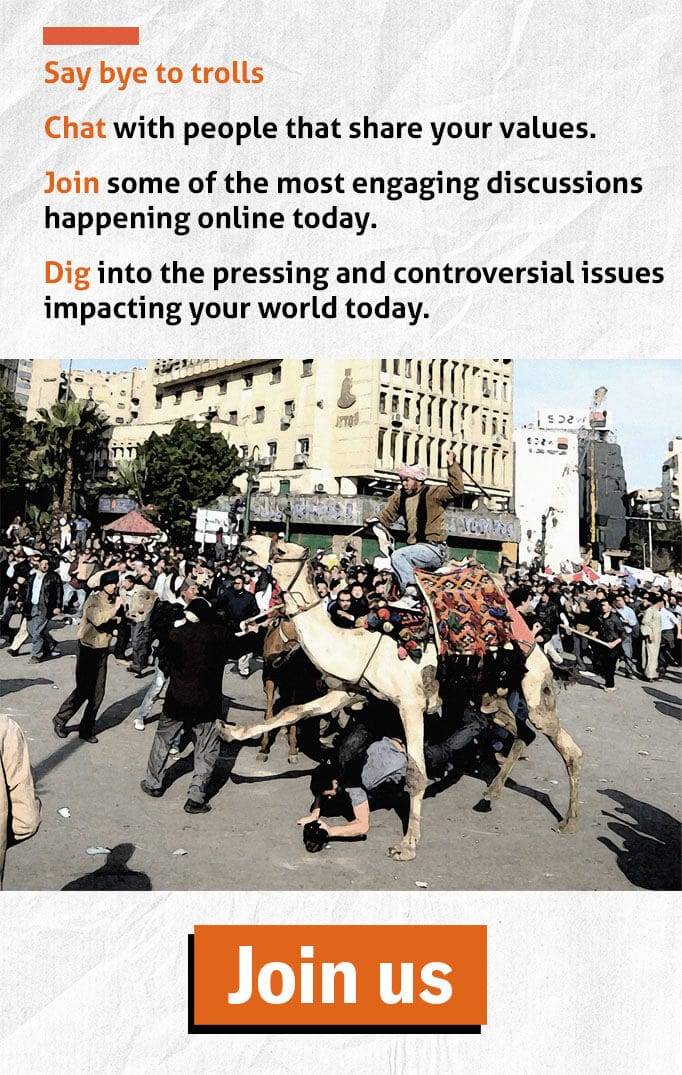Having completed her university studies in the US months prior, Dana Al-Ma’youf has been looking to secure residency there. Refusing to go back to her home of Saudi Arabia at any cost, she has applied for immigration. In a series of tweets on her personal Twitter account, she affirms that her decision to emigrate was the best she had ever made, considering the prospect of marriage and child-rearing in her home country as the greatest injustice. “Saudi women are the only ones in the world who need a guardian even when they are living in their own country and with her family, and cannot do anything without the express permission of her guardian, whether their father or husband,” she adds. She prefers living from the income she earns from selling her photographs, rather than return to her family. Hers is not a unique case. Shortly prior to her rise to prominence as an online activist against the restrictions imposed on Saudi women, another tweeter, using the moniker “Oppressed by the Buraidah Judge”, tweeted that she had emigrated to Sweden to escape the oppression she had been subjected to at the hands of a judge who had sided with her husband, threatening to deprive her from seeing her children. After seven years of trying and failing to secure her rights, she was left with no better choice than to leave for good, fearing that her husband and the judge may file a libel suit against her, she said in several videoclips she posted on social media. [h2]Increasing Numbers[/h2] These are some of the cases that have risen to the forefront over the past months, though these great escapers seem to outnumber initial estimates, and not all of them are young women. The issue prompted Saudi Shura Council member, Al-Aziz Sadaqa Fadel, to request a study into the reasons behind the emigration of a million Saudi citizens, the majority of whom now live in Egypt, Britain, and the US, as well as the UAE, Lebanon, and Morocco. During a speech Fadel made at the Shura Council in February 2016, he stated that the emigration of one million Saudi citizens within a relatively short period of time indicates the existence of some defect. He thus called the relevant authorities to study the phenomenon before it grows. [h2]Imprisonment for Libel[/h2] The cases are different but the story remains the same. A Saudi girl escaped from her family to go to Georgia while they were on family in Turkey, yet the details of the story are still missing. Despite their best efforts, her family failed to retrieve her. Though she was only seventeen years old at the time, several videos were shared of her father physically abusing her. She moreover accused her older brother of sexually harassing her, making her return to Saudi Arabia impossible, as its natural consequence would have been jailing her for stealing her family’s passports and for libel against them on social media sites. The same fate could await two other Saudi young women, neither aged over twenty, who fled their homes last October to South Korea without warning. At the time, the Saudi ambassador to South Korea, Riyad Al-Mubaraki, confirmed that one of the young women had entered South Korea. He told the Saudi state-affiliate Al-Ekhbareya channel that they were working on pinpointing her location. Meanwhile, the Saudi embassy in Seoul said in a series of tweets that it was following up with the two young women to resolve the situation. Months later, however, the two still refuse to return, and the real reasons behind their escape remain unclear. While the father of one of the young women told Jeddah-based Okaz newspaper that his daughter was obsessed with Korean soap operas, the other’s father said he received an email from her saying that she had gone to study and live there, and that she did not wish to return to Saudi Arabia. [h2]Searching for Freedom[/h2] Since Al-Aziz Fadel’s warnings, no steps have been taken to attempt to discover the reasons behind this purported mass exodus, while officials repeatedly confirmed that they were “individual cases”, rather than a phenomenon that requires studying. Meanwhile, rights activists affirm that the search for freedom and the desire to shed the kingdom’s severe restrictions are the reasons behind young women escaping. Rights activist and Shariah professor Suhailah Zain Al-Abidine Hammad says that, in certain cases, these girls and young women experience harsh treatment at the hands of one or both of their parents, or perhaps a step-parent. “The majority of these girls are searching for freedom, due to the restrictions we have on everything, and because females are forced to depend on their guardians in every step of their lives,” she tells Raseef22. Hammad further contends that many girls feel restricted, and robbed of their agency. “Men control every aspect of their lives, and even appropriates their assets, while some of them brutalize women or deprive them of getting married. If a woman dares to complain, her father can simply sue her for ‘uqooq [ingratitude], and have her thrown in jail and flogged, and she cannot be released without his permission,” she continues. “We have to study the reasons behind these cases in order to address them, and reform the system that restricts women’s dealings,” Hammad adds. [h2]Abuse of ‘Uqooq Law[/h2] The authorities, nonetheless, seem to be in no hurry to study the causes behind this trend. Head of the National Society for Human Rights in Saudi Arabia Khaled Al-Fakhry states that this is because the trend has not yet turned into a major phenomenon, telling Raseef22: “These are individual cases that differ from one another, and each has its causes and motivations.” He further refuses to recognize a link between these escapes, which have begun to increase, and the campaign to end guardianship. He believes the reasons behind the campaign differ from the reasons behind these young women’s escapes, noting that the majority of the latter “are caused by familial issues.” “We get reports of many such cases, and when we look at them we find that the cause was mistreatment or deprivation of rights,” he notes. However, he does acknowledge the existence of a serious issue in terms of the abuse of certain laws by parents or guardians, most prominent the ‘uqooq law. “These cases are measured according to the behavior of the plaintiff, as they might exhibit negative behavior or have unreasonable demands, and when these demands are not met they file such a lawsuit. However, these days, such complaints are investigated, to ensure that they are not malicious,” he explains. [h2]Severe Restrictions[/h2] Saudi women escape to Sweden, South Korea, and Georgia, while over forty-four young women are on scholarships in different countries, many of whom refuse to go back home, preferring to live abroad instead, according to the National Society for Human Rights. Among these are renowned scientists, such as Adah Al-Mutairi, currently the Director of the Center for Excellence in Nanomedicine and Engineering at the University of California, San Diego’s Institute of Engineering in Medicine. The authorities do not think these cases are worth studying, though a quick tour of Saudi women’s Twitter accounts, particularly the younger generations, tells a different story. Many of these young women dream of emigrating, but the difficulty of travelling without a guardian stands in the way of these dreams. From his point of view, rights activist and former Shura Council member Najeeb Al-Zamil finds the overwhelming disregard for such cases puzzling. “First, we have to admit there’s a problem before we can address it. Even if it is one individual case, so long as there are young women, and even men, emigrating, the immediate defense strategy s to attempt to justify the isssue and put off looking into. This is because, in reality, this is a warning sign, and we need to look into it,” he says. Until then, young women like Dana will continue dreaming of emigrating, and escaping the shackles of patriarchy pervading every aspect of their lives. 

Raseef22 is a not for profit entity. Our focus is on quality journalism. Every contribution to the NasRaseef membership goes directly towards journalism production. We stand independent, not accepting corporate sponsorships, sponsored content or political funding.
Support our mission to keep Raseef22 available to all readers by clicking here!




Join the Conversation
Anonymous user -
1 day agoUn message privé pour l'écrivain svp débloquer moi sur Facebook
Anonymous user -
2 days agoالبرتغال تغلق باب الهجرة قريبا جدااا
Jong Lona -
2 days agoأغلبهم ياخذون سوريا لان العراقيات عندهم عشيرة حتى لو ضربها أو عنقها تقدر تروح على أهلها واهلها...
ghdr brhm -
2 days ago❤️❤️
جيسيكا ملو فالنتاين -
5 days agoجميل جدا أن تقدر كل المشاعر لأنها جميعا مهمة. شكرا على هذا المقال المشبع بالعواطف. احببت جدا خط...
Tayma Shrit -
6 days agoمدينتي التي فارقتها منذ أكثر من 10 سنين، مختلفة وغريبة جداً عمّا كانت سابقاً، للأسف.